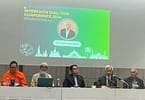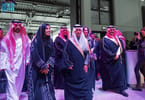The year 2015 can be considered as the year of elections in Central Asia as Tajikistan has already gone through peaceful parliamentary elections, Uzbekistan is ready to elect a new President on March 29 while Kazakhstan is planning to hold its presidential elections on April 26.
It may be mentioned that the lower as well as upper House of Kazakh Parliament have voted for early elections considering the fact that smooth continuity of decision-making is very important for young Central Asian states in the backdrop of post-US withdrawal from Afghanistan and rising threats from non-state actors to Central Asian states.
According to Kazakhstan’s parliamentary speaker, Kabibulla Dzhakupov, the early presidential election was needed “to turn the risks and challenges of the global crisis into new opportunities and prospects for our homeland.”
These threats were well expressed by political as well as social experts from Central Asian states in a recent conference held in the capital of Turkmenistan.
The conference was attended by political scientists and experts from Kazakhstan, Kyrgyzstan, Uzbekistan, and Tajikistan from Central Asia while Afghanistan also attended the conference that was organized jointly by the Ministry of Foreign Affairs of Turkmenistan and the office of the NATO Liaison Officer in Central Asia.
Important lectures given by experts indicated that threats to Central Asia are more from non-state actors (terrorists) than any state.
Dr. Ulugbek Khasanov (Associate Professor at the University of World Economy and Diplomacy, Uzbekistan) was of the view that Central Asia is facing non-state threats, which no state in the region is able to deal with on its own.”
Dr. Kuralai Baizakova (Professor at Al-Farabi Kazakh National University, Kazakhstan) was of the view that development of new regional mechanisms is need of the day. Elnura Omurkulova-Ozierska (Researcher at the National Strategic Studies Institute, Kyrgyzstan) highlighted the increasing threat to Central Asian security posed by radicalization, while warning that harsh counter-terrorism policies adopted by some countries can be counter-productive.
Bakhtiyor Rakhmonov, an independent expert from Tajikistan hopes that the international community would assist Tajikistan in strengthening the security of its long common border with Afghanistan.
Comments of Central Asian experts in this conference testified that young republics well understand the threat posed by their proximity with instable Afghanistan that is a breeding ground for terrorism since the 1979 Afghan-Russo war. Alas Pakistan did not understand this reality till last year when its armed forces had to start fighting against terrorists living in its restive tribal areas.
The results of the Tajikistan Parliamentary elections are encouraging where the Islamic Revival Party was washed away from national politics and the People’s Democratic Party supported by sitting President Rakhmon who won the elections, and this development ensures the continuity of development policies in Tajikistan.
The next elections in Central Asia are scheduled on March 29 in Uzbekistan where contestants, including the incumbent President, Islam Karimov, of the Liberal Democratic Party will go for a next 5-year term. Other candidates are Khatamzhon from the People’s Democratic Party, Narimon Umarov of the Social Democratic Party, and Akmal Saidov of the Democratic Party (Mili Tiklanish [National Renaissance] National Renaissance.
The incumbent President, Islam Karimov, is known for his successful development policies, sustainable economic growth and clear regional philosophy, and his cordial relations with leaders of Central Asia. He is not only a President of Uzbekistan, rather he is respected as a father figure in entire Central Asia by all stratum of Central Asian societies.
Dr. Aftab Kazi, a regional expert for Central Asia, wrote in his latest article that Karimov has an edge over other candidates for having led the people in their most difficult times since early independence and have led the country with a fast economic and sociopolitical development and safeguarding the country from extremism and terrorism.
Though all candidates have their own interesting and positive electoral manifestos, the most important issue right now is a manifesto ensuring a successful and strong foreign policy in the backdrop of relatively tough regional geopolitics, unpredictable scenarios of the post-US troop draw down from Afghanistan, and evolving threats of ISIS terror to Central Asia.
Experts believe that it appears that the decision to contest elections for President Karimov was a difficult one at the behest of party and public pressure that he must be anchoring Uzbekistan under these very difficult geopolitical times ahead, just as he did during the similarly tough times after independence. The foreign policy mottos of Uzbekistan derive its strength from the national Constitution and the Uzbek model of economic and political development that concentrates upon balanced multi-vector relationships in the cause of national interest, respect for the sovereignty and territorial integrity of neighboring states, and respect for international laws and treaties. Moreover, Uzbekistan maintains the right to enter alliances, join Commonwealth and international organizations, and the right to leave them for supreme national security interests particularly avoid controversial neighboring conflicts and/or the deployment of foreign military bases on Uzbek territory. Briefly, Uzbekistan is seeking peaceful international cooperation and willing to reciprocate.
The forthcoming presidential elections in Uzbekistan are very important for several foreign policy and security concerns. First, the independent and neutral foreign policy positions that Uzbekistan has maintained all along must not be misinterpreted. Uzbekistan has been balancing her foreign policy in-between the various conflicting interests of United States, Russian Federation, China, and the broader membership of SCO, all threatened by extremism and terrorism.
The independent policies of President Islam Karimov, which despite regional differences, have maintained a balance among Russian, China, and US policies.
Uzbekistan, being the pivotal state in Central Asia, remains in the forefront of the fight against terrorism and together with SCO maintains a major anti-terrorism center which has already foiled reportedly 1,600 plus terror attempts so far throughout the region. It is time to formally acknowledge the contributions of Uzbekistan as an active partner in the war on terror in Afghanistan and region wide. Therefore, the March 29 presidential election is an important event in terms of national and regional security, and continuity of regional policies will not only benefit Uzbekistan but all of her neighbors as well to keep Central Asia secure from rising threats from non-state actors in the region.
Tourism is one of the main bread earners of mostly Central Asian states, and tourism needs a stable, secure and peaceful environment to attract visitors and investors. The prime example is UAE that had no major product to sell and showcase except its beaches just 2 decades ago, but political and economic stability due to continuity of policies have made Dubai the most wanted and promising hot destinations of the world. Central Asia needs continuity of policies at this sensitive time of regional history to maintain its moderate position in the international tourism market.
Kazakhstan that was free of worries due to its one of the biggest oil resources in the region is also looking towards tourism development after the oil price meltdown and since presidents of Kazakhstan and Uzbekistan know each other personally for the last half a century, therefore, their collective planning in tourism development can make wonders in coming years in the region.
WHAT TO TAKE AWAY FROM THIS ARTICLE:
- It may be mentioned that the lower as well as upper House of Kazakh Parliament have voted for early elections considering the fact that smooth continuity of decision-making is very important for young Central Asian states in the backdrop of post-US withdrawal from Afghanistan and rising threats from non-state actors to Central Asian states.
- The conference was attended by political scientists and experts from Kazakhstan, Kyrgyzstan, Uzbekistan, and Tajikistan from Central Asia while Afghanistan also attended the conference that was organized jointly by the Ministry of Foreign Affairs of Turkmenistan and the office of the NATO Liaison Officer in Central Asia.
- The year 2015 can be considered as the year of elections in Central Asia as Tajikistan has already gone through peaceful parliamentary elections, Uzbekistan is ready to elect a new President on March 29 while Kazakhstan is planning to hold its presidential elections on April 26.






















